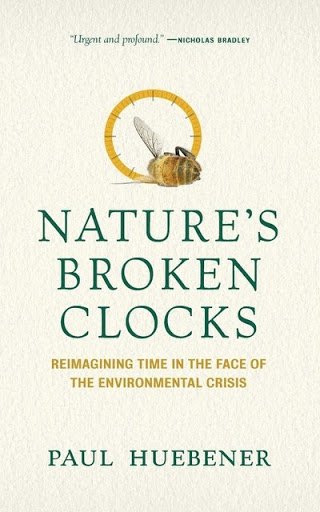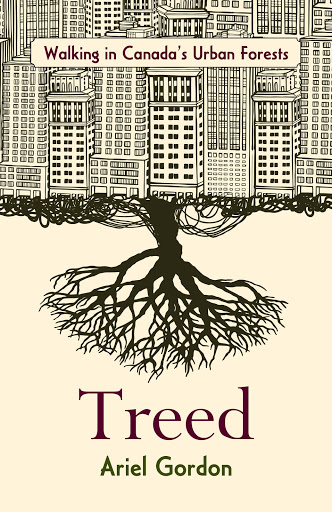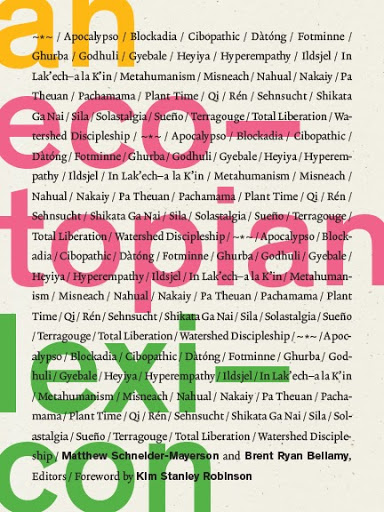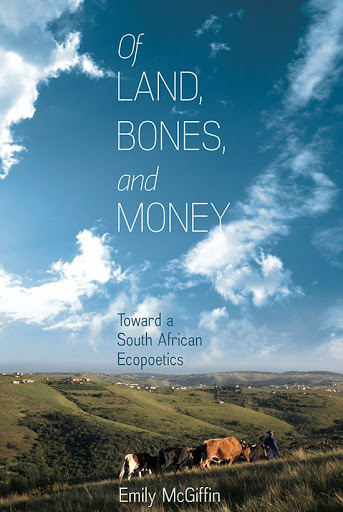Paul Huebener
Nature's Broken Clocks

The environmental crisis is, in many ways, a crisis of time. From the distress cries of birds that no longer know when to migrate, to the rapid dying of coral reefs, to the quickening pace of climate disasters, the patterns and timekeeping of ecosystems are falling apart. We have broken nature's clocks.
Lying hidden at the root of this problem are the cultural narratives that shape our actions and horizons of thought, and as Paul Huebener shows, we can bring about change by developing a critical literacy of time. Moving from circadian rhythms and ancient frozen bacteria to advertisements and pipelines, Huebener turns to literature to show how cultural narratives of time are connected to the problems of ecological collapse and what we might do to fix them.
Paul Huebener is an Associate Professor of English at Athabasca University. His new book, Nature's Broken Clocks: Reimagining Time in the Face of the Environmental Crisis, has been reviewed in the Literary Review of Canada and on CBC Radio. His previous book, Timing Canada: The Shifting Politics of Time in Canadian Literary Culture, was a finalist for the Gabrielle Roy Prize.
Ariel Gordon
Treed

With intimacy and humour award-winning poet Ariel Gordon walks us through the streets of Winnipeg and into the urban forest that is, to her, the city's heart. Along the way she shares with us the lives of these urban trees, from the grackles and cankerworms of the spring, to the flush of mushrooms on stumps in the summer and through to the red-stemmed dogwood of the winter. After grounding us in native elms and ashes, Gordon travels to BC's northern Rockies, to Banff National Park and a cattle farm in rural Manitoba, and helps us to consider what we expect of nature. Whether it is the effects of climate change on the urban forest or foraging in the city, Dutch elm disease in the trees or squirrels in the living room, Gordon delves into our relationships with the natural world with heart and style. In the end, the essays circle back to the forest, where the weather is always better and where the reader can see how to remake even the trees that are lost.
Ariel Gordon is a writer living in Winnipeg in Treaty 1 territory on the homeland of the Métis Nation. Her most recent book, a collection of essays called Treed: Walking in Canada's Urban Forest (Wolsak & Wynn, 2019), received an honourable mention for ALECC's 2020 Alanna Bondar Memorial Book Prize. Her long/found poem TreeTalk will be published by At Bay Press in fall 2020.
Brent Bellamy
An Ecotopian Lexicon

Each of the thirty suggested "loanwords" helps us imagine how to adapt and even flourish in the face of the socioecological adversity that characterizes the present moment and the future that awaits. From "Apocalypso" to "Qi," " ~*~ " to "Total Liberation," thirty authors from a range of disciplines and backgrounds assemble a grounded yet dizzying lexicon, expanding the limited European and North American conceptual lexicon that many activists, educators, scholars, students, and citizens have inherited. Fourteen artists from eleven countries respond to these chapters with original artwork that illustrates the contours of the possible better worlds and worldviews.
Brent Ryan Bellamy is an instructor at Trent University where he teaches classes on comics, globalization, literature, and energy, and critical world building. His book Remainders of the American Century: Post-Apocalyptic Novels in the Age of US Decline will be published by Wesleyan University Press in Spring 2021.
Emily McGiffin
Of Land, Bones, and Money: Toward a South African Ecopoetics

The South African literature of iimbongi, the oral poets of the amaXhosa people, has long shaped understandings of landscape and history and offered a forum for grappling with change. Of Land, Bones, and Money examines the shifting role of these poets in South African society and their responses to segregation, apartheid, the injustices of extractive capitalism, and contemporary politics in South Africa.
Emily McGiffin is a Lecturer in the Faculty of Creative and Critical Studies at UBC Okanagan and the author of two poetry collections. In 2021 she will begin a three-year research fellowship at University College London where she will examine environmental injustices in the aluminum supply chain and cultural responses to environmental trauma.